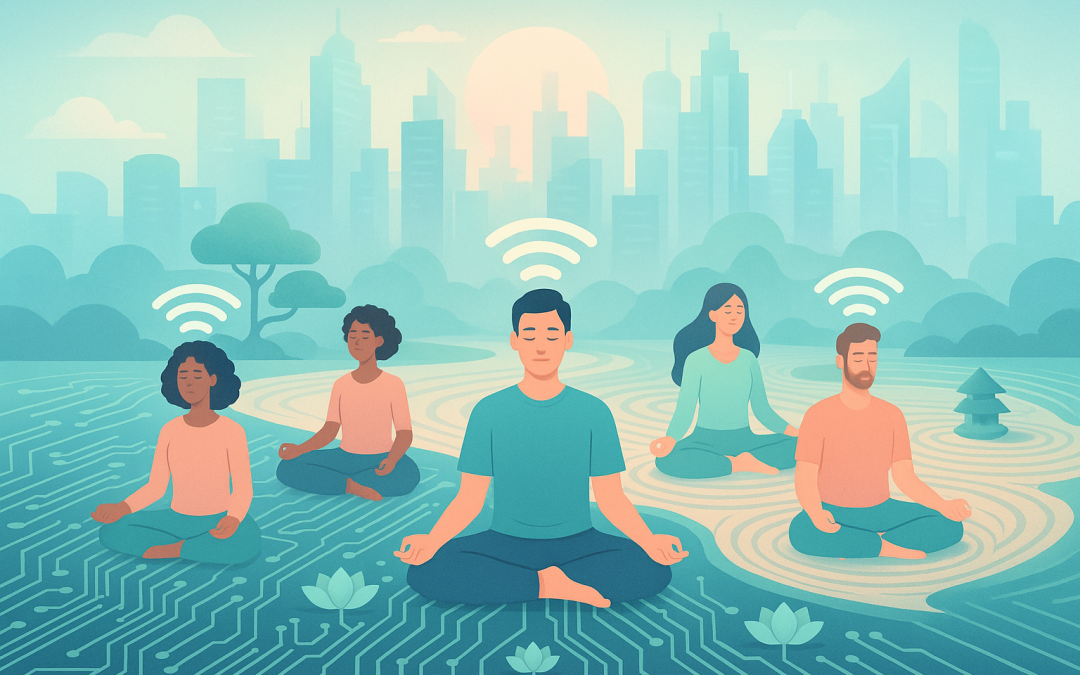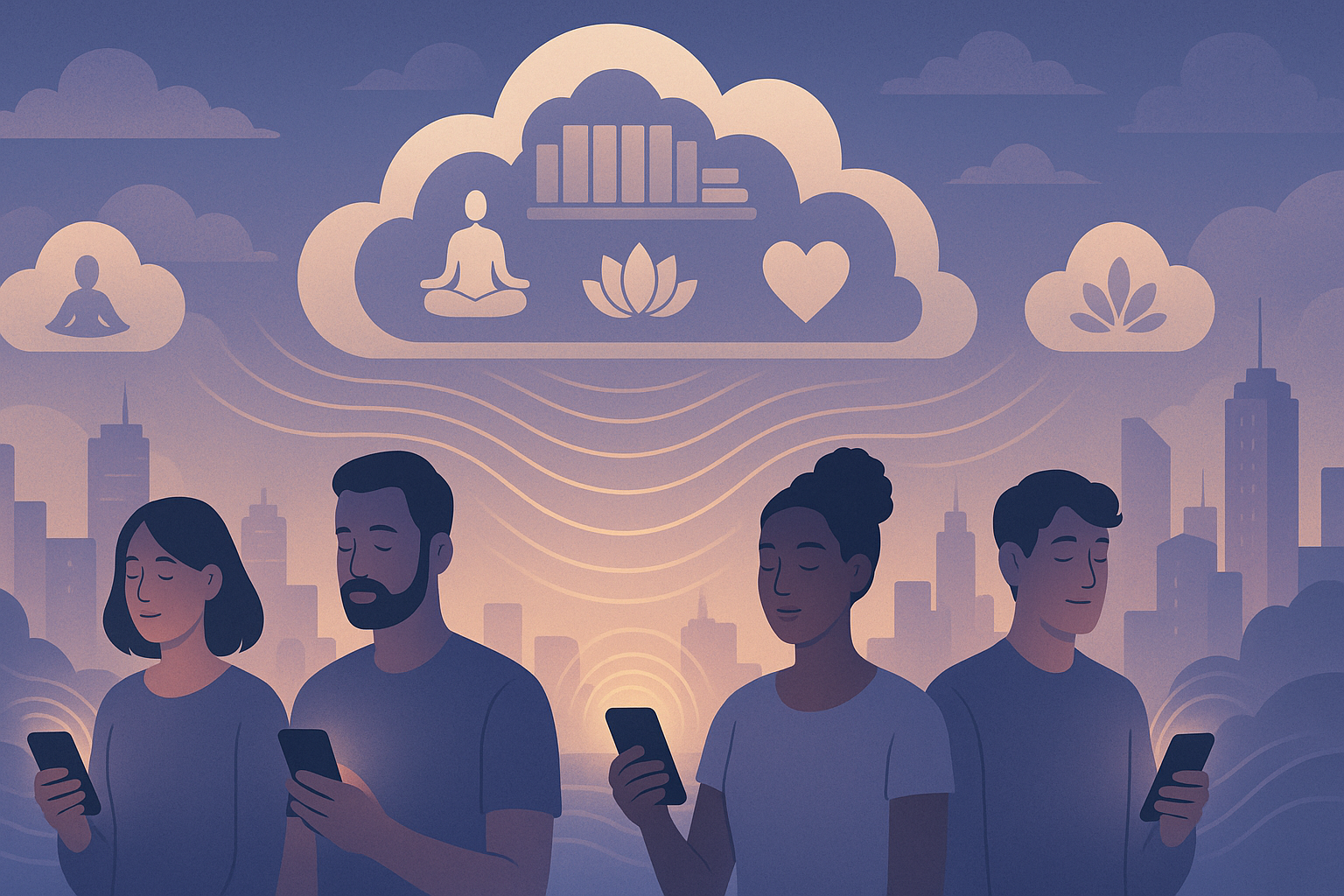The Role of Technology in Making Meditation Accessible to All
In today’s fast-paced world, meditation has emerged as a beacon of calm and clarity amidst the chaos. Yet, for many, the journey to mindfulness can seem daunting. Fortunately, technology is breaking down barriers and making meditation accessible to everyone, regardless of location or experience level. In this blog post, we will explore how technology is transforming the meditation landscape, making it easier than ever for anyone to tap into the benefits of mindfulness.
Table of Contents
Introduction
For centuries, meditation has been practiced as a way to achieve inner peace and mental clarity. However, traditional methods often required access to specific knowledge or environments, which could be limiting for many. With the advent of modern technology, these barriers are being dismantled, opening up a world of possibilities for aspiring meditators. From apps that guide you through meditative practices to virtual reality experiences that transport you to serene environments, the landscape of meditation is evolving dramatically.
Apps and Guided Meditations
One of the most significant advancements in making meditation accessible is the proliferation of meditation apps. These apps, such as Headspace, Calm, and Insight Timer, offer a plethora of guided meditations tailored to various needs and levels of experience. Whether you’re looking to reduce stress, improve sleep, or enhance focus, there’s likely a meditation app that fits your needs.
The beauty of these apps lies in their convenience. With just a few taps on your smartphone, you can access a library of meditations anytime, anywhere. This flexibility makes it easier for people with busy schedules to incorporate mindfulness into their daily routines. Moreover, many apps offer free trials or basic versions, making them accessible to those on a budget.
Virtual Reality Experiences
Imagine being transported to a tranquil beach or a serene forest with the simple act of putting on a VR headset. Virtual reality (VR) is revolutionizing meditation by providing immersive experiences that can enhance the practice. Companies like TRIPP and Oculus have developed VR meditation platforms that allow users to escape their immediate surroundings and meditate in visually stunning environments.
These virtual experiences can be particularly beneficial for those who find it challenging to focus in their current environment. By creating a multisensory experience, VR helps users achieve a deeper state of relaxation and mindfulness. It’s an exciting development that opens up new possibilities for meditation enthusiasts.
Online Communities and Forums
While meditation is often a solitary practice, the journey can be enriched by connecting with others. Online communities and forums provide a platform for individuals to share their experiences, ask questions, and support each other’s meditation journeys. Websites like Reddit and specialized forums offer spaces where meditators can gather to discuss techniques, challenges, and successes.
These communities can be incredibly supportive, especially for beginners who may feel isolated in their practice. By engaging with others, meditators can gain new insights, find motivation, and feel a sense of belonging, which is crucial for sustaining a long-term practice.
Wearable Technology
Wearable technology, such as the Muse headband and Fitbit, is another tool making meditation more accessible. These devices provide real-time feedback on brain activity, heart rate, and breathing patterns, giving users insights into their meditation sessions. By tracking progress and providing data-driven insights, wearable tech empowers individuals to refine their practice and understand what works best for them.
For those who appreciate data and tangible results, wearable technology can be a game-changer. It not only enhances the meditation experience but also helps users stay accountable and motivated.
Conclusion
Technology is playing an instrumental role in democratizing meditation. From apps and VR experiences to online communities and wearables, there are more tools than ever to help individuals embark on their mindfulness journey. As technology continues to evolve, we can expect even more innovative solutions that will further break down barriers and make meditation accessible to all.
FAQs
Q: Are meditation apps suitable for beginners?
A: Absolutely! Most meditation apps offer beginner-friendly guided meditations and courses designed to introduce newcomers to mindfulness practices.
Q: Can VR meditation replace traditional meditation methods?
A: While VR meditation offers unique benefits, it is best used as a supplement to traditional methods. It provides a different experience that can enhance, but not replace, traditional practices.
Q: How do wearables enhance the meditation experience?
A: Wearables provide real-time feedback on physiological metrics, helping users understand their body’s response to meditation and track progress over time.
? Embrace the future of meditation and explore the myriad ways technology can enhance your mindfulness journey. Happy meditating! ????
Roshiwave Meditation Mind Machine
Add CTA sections description.


